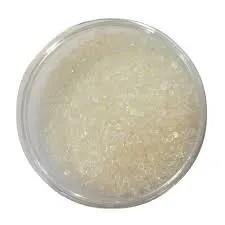Industrial Water Treatment The Role of Chemicals
Water treatment in industrial settings is crucial for maintaining operational efficiency, safeguarding equipment, and ensuring compliance with environmental regulations. The quality of water significantly affects processes across various industries, from manufacturing to power generation. Chemicals specifically formulated for industrial water treatment play a vital role in optimizing water quality, enhancing the performance of systems, and preventing costly downtime.
Understanding Industrial Water Treatment
Industrial water treatment encompasses a series of processes that purify and manage water used in industrial applications. This includes the treatment of both process water, which is used directly in manufacturing processes, and utility water, such as cooling water for power plants. The primary goals of water treatment are to remove impurities, control scale formation, and mitigate corrosion in piping systems and equipment.
Key Chemicals Used in Water Treatment
1. Coagulants and Flocculants These chemicals are essential in the primary stages of water treatment. Coagulants, such as aluminum sulfate and ferric chloride, destabilize colloidal particles in water, allowing them to aggregate and settle out. Flocculants aid in this process by promoting the formation of larger flocs that can be easily removed from the water. The removal of suspended solids not only improves water clarity but also reduces the load on subsequent treatment processes.
2. pH Adjusters Maintaining the correct pH level in industrial water systems is critical. pH adjusters, such as sulfuric acid or sodium hydroxide, are used to either increase or decrease the pH to optimal levels. A balanced pH ensures the effectiveness of other treatment chemicals, reduces corrosion risk, and minimizes scaling.
3. Scale Inhibitors Scale formation in boilers, cooling towers, and heat exchangers can lead to significant operational issues, including reduced efficiency and system failure. Scale inhibitors, such as polyacrylic acid and phosphonates, prevent the precipitation of scale-forming minerals like calcium and magnesium, thereby extending the lifespan of equipment and reducing maintenance costs.
chemicals for industrial water treatment

4. Corrosion Inhibitors Corrosion is a major concern in industrial water systems, which can lead to leaks, equipment failure, and costly repairs. Corrosion inhibitors, such as sodium nitrite and molybdates, protect metal surfaces by forming a passive film or by scavenging corrosive ions. The use of these inhibitors is essential for prolonging the life of infrastructure and ensuring the reliability of operations.
5. Biocides and Disinfectants The presence of microbial contaminants in water can cause biofouling and other problems, especially in cooling towers and wastewater systems. Biocides, such as chlorine, bromine, and quaternary ammonium compounds, are employed to control microbial growth, ensuring the safe and efficient operation of water systems.
6. Defoamers and Antifoam Agents Foam can hinder the effectiveness of water treatment processes and lead to operational inefficiencies. Defoamers and antifoam agents are added to minimize foam formation, improving equipment functionality and reducing downtime associated with foam issues.
Environmental Considerations
The use of chemicals in industrial water treatment must be carefully managed to comply with environmental regulations. Overuse or improper disposal of chemicals can lead to contamination of water bodies and harm aquatic ecosystems. Therefore, industries are increasingly adopting green chemistry principles, which advocate for the reduction or elimination of hazardous substances in processes. This includes the development of biodegradable or non-toxic alternatives to traditional treatment chemicals.
Conclusion
The effective use of chemicals for industrial water treatment is essential for optimizing operations across a range of industries. By selecting the appropriate chemicals and implementing a robust water management strategy, companies can ensure water quality, protect their assets, and adhere to environmental standards. As technology advances, ongoing research and innovation will continue to enhance the efficacy and safety of chemical treatments, allowing industries to meet their water management challenges sustainably. Ultimately, investing in effective water treatment chemicals not only supports environmental goals but also contributes to the long-term success of industrial operations.

